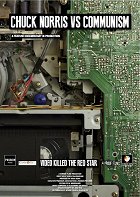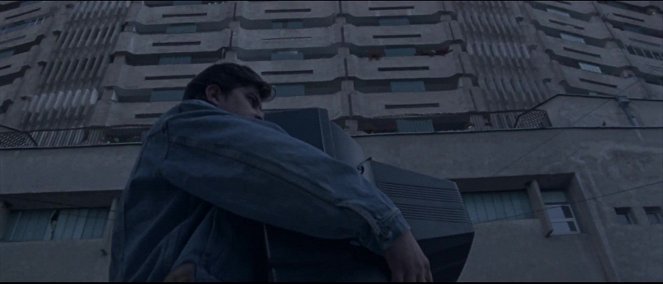Directed by:
Ilinca CalugareanuScreenplay:
Ilinca CalugareanuCast:
Robert KocsisPlots(1)
In the 1980s, under the Nicolae Ceaușescu regime, Romanians suffered from little access to foreign goods as well as an information blackout the Communist bureaucrats used to ensure ideological purity. But in clandestine screenings at neighbors' homes of smuggled VHS tapes dubbed by a one-man distribution network, people got a glimpse of the Western world and a culture of muscular individuality with heroes like Jean-Claude Van Damme, Sylvester Stallone, and, of course, Chuck Norris. (Sundance Film Festival)
(more)Reviews (2)
Chuck Norris vs. Communism is an excellent supplement to the recent documentaries about Cannon Films (Electric Boogaloo and The Go-Go Boys). It is apparent from the film that watching videotapes of the Golan-Globus duo’s trashy productions helped many Romanians survive the final years of the Ceausescu dictatorship. In and of themselves, the testimonies of people for whom watching Chuck Norris kicking the asses of treacherous Commies was a form of defiance are a piece of honest and useful oral-history work for further research. As would of course be confirmed by domestic witnesses of the rigid era of illicitly distributed VHS tapes in a country with strict censorship and practically no possibility to travel abroad, even the dumbest western film was a welcome escape into a world of luxury cars, unabashed eroticism, brutal violence and stores with shelves overflowing with goods. This level is reinforced and supplemented by both aptly chosen excerpts from films of various quality and genres and staged scenes from the Communist era. The dramatisation, which takes on the style of Romanian New Wave social dramas (the depressing nature of gloomy prefabricated apartment blocks, furtive camera movements, distanced shooting in units), serves to reveal how it could happen that officially banned films entered a country with closely guarded borders. The filmmakers focus on the story of a translator who synchronously dubbed the films into Romanian (and whose fetishized voice many associated with freedom and forbidden fruit), and on an entrepreneur who managed to supply the Romanian video (black) market for several years thanks to money, daring and connections. The smuggling story, which includes the rapid dubbing of Rocky quickie in a dark basement and a hint of a connection to the secret service, resembles a cheaper, though still very suspenseful variation on Graham Greene’s books and thanks to the slow doling out of information, it manages to hold the viewer’s attention for at least the entire first hour of the film, despite the slower pace of the narrative. In the last fifteen minutes, it becomes apparent that there probably wasn’t that much supporting material available and a sixty-minute runtime would have been sufficient. One can also criticise the film for its uncritical adoration of two pioneers of the Romanian video market (facts that would not fit the image of the courageous almost-dissidents are not conveyed) or for depicting the reality of life in a Romanian housing estate in excessively dark colours. In short, the chosen stylisation and the engaging nature of the story are occasionally given priority over the more serious work with substantiated information. However, this does not take anything away from either the mastery with which director Ilinca Calugareanu (who, having been born in 1981, may herself have watched JCVD’s scissor kicks with the fascinated gaze of a child) executes her fusion of documentary and dramatic techniques, or from the richness of the motifs that she succeeds in developing throughout the film: systemic and internal censorship, the economic backwardness of the Eastern Bloc, community life in the housing estates, the relativity of the art that we consider to be valuable. Above all, however, this is an irresistible celebration of the ability of films, even those in which Chuck Norris bites a giant rat, to transport us to another, more exciting and more satisfying reality. 80%
()
(less)
(more)
The thought-provoking topic of this documentary is portrayed in a somewhat unfortunate way, as the dramatic reconstructions of the story of an iconic rapid-dubbing artist and her colleagues are interwoven with nostalgic testimonies of witnesses. At the same time, the talking heads are much more essential here than the effort to stretch the runtime with supposedly thrilling intermezzos. Rather, the viewer is enchanted by the fervour of the individual witnesses as they recall what shared video-evenings meant to them. In these testimonies, the film’s declared theme comes to life, along with its various other aspects, including the role played by American trash films in shaping the dreams, style and self-image of a particular generation of adolescents. (Abridged 55-minute television version viewed)
()

